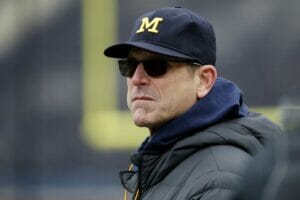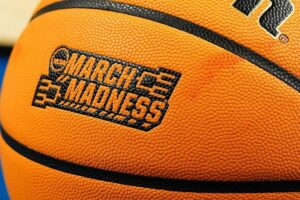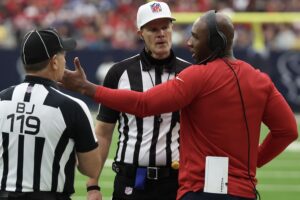NCAA Betting Rules Violated 175 Times Since 2018

The National Collegiate Athletic Association (NCAA) has reported a significant number of sports wagering violations in recent years.
Since the start of the legal gaming era in 2018, there have been 175 infractions of the NCAA’s sports betting policies.
This specific information was disclosed in a letter from NCAA President Charlie Baker to U.S. Rep. Dina Titus (D-1), of Nevada, which Titus then sent to Associated Press and various sports teams.
The violations range from athletes, coaches, and administrators making “$5 wagers,” to “providing inside information.” Currently, 17 of these cases are under active investigation.
High-Profile Cases and Ongoing Investigations
The NCAA’s disclosure comes in the wake of several high-profile sports wagering incidents across the US
One such case involved Brad Bohannon, the former head coach of Alabama’s baseball team, who was dismissed because of suspicious betting activity involving his team.
Bohannon was involved with Bert Neff Jr., a youth league baseball coach, who attempted to place a $100,000 wager on a game between the Crimson Tide and LSU.
Neff’s betting activities also reportedly led to the firing of two assistant baseball coaches at the University of Cincinnati.
Although not a college sport — so not under the NCAA’s purview — the NFL has also suspended nine athletes for betting violations so far in 2023.
All of this is not a good look for sports integrity. Especially from the viewpoint of the NCAA, as they were the organization who unsuccesfully fought in the Supreme Court against the repeal of the Professional and Amateur Sports Protection Act of 1992 (PASPA) in 2018. That was a decision which directly led to the progress towards regulated U.S. sports betting as it is today.
Education and Integrity
In response to the rising number of violations, the NCAA has taken several steps to ensure the integrity of its events.
The organization has hired an integrity monitoring service to provide risk assessments, monitor pre-game and in-game wagering patterns, and provide immediate notification of suspicious activities.
Last month, It also announced a new modernized penalty structure for college athletes who violate rules. That means fewer blanket bans and more understanding of mitigating circumstances, depending on the severity of the offense.
According to Baker’s letter to Titus, less than 0.25% of the NCAA’s approximately 13,000 sporting events are flagged for suspicious betting patterns.
The NCAA is also focusing on educational awareness.
Since January 2022, more than 10,000 student-athletes and administrators have participated in programming provided by EPIC Risk Management, a partner of the NCAA. Despite these efforts, the NCAA acknowledges that sports betting brings risks that could undermine the integrity of competition.
Congressional Response
Rep. Dina Titus, whose district includes the Las Vegas Strip, has been active in seeking clarity on sports betting policies. She has sent letters to leaders of professional sports leagues, asking them to clarify their sports betting policies and assure fans that the games they watch and choose to bet on are fair.
In response to the NCAA’s disclosure, Titus thanked Baker for the clarity he provided.
“This kind of transparency is crucial for the integrity of the game and success of legal sports betting,” she said.
“Now that we have answers from the NCAA, I need to hear from professional sports leagues about their efforts to protect players and the public from illegal activities.”











